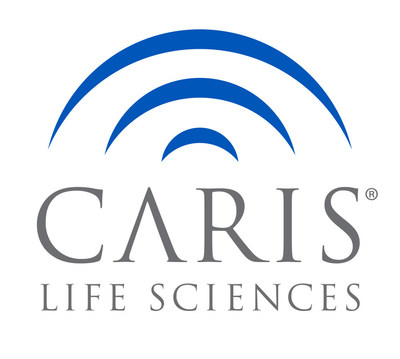Caris Life Sciences Validates and Extends Findings on Tumor-Infiltrating Clonal Hematopoiesis
Rhea-AI Summary
Caris Life Sciences (NASDAQ: CAI), a precision medicine pioneer, has published significant findings in the New England Journal of Medicine validating research on tumor-infiltrating clonal hematopoiesis (TI-CH). The study analyzed 3,255 matched tumor-blood NGS samples from their database of over 500,000 samples.
Key findings revealed that TI-CH is most prevalent in non-small cell lung cancer (NSCLC), affecting approximately 23% of patients. Notably, patients with TI-CH showed a 30% higher mortality risk. The research addresses the critical challenge of blood-derived mutations being misinterpreted as tumor-specific mutations, which can lead to incorrect treatment decisions.
Positive
- None.
Negative
- Study reveals 30% higher mortality risk for patients with TI-CH
- Research identifies significant misdiagnosis risk in cancer treatment
- 23% prevalence rate in NSCLC patients indicates widespread clinical challenge
News Market Reaction
On the day this news was published, CAI gained 7.07%, reflecting a notable positive market reaction.
Data tracked by StockTitan Argus on the day of publication.
Validation was shared via a Letter to the Editor in the New England Journal of Medicine
As a champion of scientific collaboration, Caris appreciated the opportunity to validate a recent study published in the New England Journal of Medicine, which brought attention to the clinical challenge of TI-CH—blood-derived mutations that infiltrate tumor tissue and are often misinterpreted as tumor-specific mutations. These misinterpretations can lead to inappropriate treatment decisions and poorer patient outcomes.
"The ability to validate important studies shows how collaboration between Caris scientists and a Caris Precision Oncology Alliance member can quickly respond to and confirm new discoveries, enhancing clinically meaningful insights for oncologists and their patients," said David Spetzler, MS, PhD, MBA, President of Caris. "This precision ensures that treatment decisions are based on true tumor biology, ultimately leading to better outcomes for patients."
Caris built on the findings from the study and analyzed 3,255 matched tumor–blood NGS samples from its extensive real-world clinico-genomic database of over 500,000 samples. The study focused on patients with late-stage cancer and confirmed TI-CH is prevalent across solid tumors, with the highest incidence in non-small cell lung cancer (NSCLC) - approximately 1 in every 4 patients (
"Clonal hematopoietic mutations play a critical role in the precision oncology puzzle," said George W. Sledge, Jr., MD, Caris EVP and Chief Medical Officer. "Understanding their role in treatment response will lead to improved patient outcomes."
The article can be viewed on the Caris Life Sciences website.
About Caris Life Sciences Caris Life Sciences® (Caris) is a leading, patient-centric, next-generation AI TechBio company and precision medicine pioneer that is actively developing and commercializing innovative solutions to transform healthcare. Through comprehensive molecular profiling (Whole Exome and Whole Transcriptome Sequencing) and the application of advanced AI and machine learning algorithms at scale, Caris has created the large-scale, multimodal clinico-genomic database and computing capability needed to analyze and further unravel the molecular complexity of disease. This convergence of next-generation sequencing, AI and machine learning technologies, and high-performance computing provides a differentiated platform to develop the latest generation of advanced precision medicine diagnostic solutions for early detection, diagnosis, monitoring, therapy selection and drug development.
Caris was founded with the belief and vision that combining a vast set of consistently generated molecular information with robust data-driven insights could realize the potential of precision medicine for patients. Headquartered in
Forward Looking Statements
This press release contains forward-looking statements, within the meaning of the federal securities laws, about Caris Life Sciences and its business. All statements other than statements of historical facts contained in this press release are forward-looking statements. In some cases forward-looking statements can be identified by words such as "may," "will," "should," "would," "expect," "plan," "anticipate," "could," "intend," "target," "project," "potential," "contemplate," "believe," "estimate," "predict," "potential," "supports" or "continue" or similar expressions.
You should not rely upon forward-looking statements as predictions of future events. Although we believe that the expectations reflected in these forward-looking statements are reasonable based on information currently available to us, we cannot guarantee that the future results, discoveries, levels of activity, performance or events and circumstances reflected in forward-looking statements will be achieved or occur. Forward-looking statements involve known and unknown risks and uncertainties, some of which are beyond our control. Risks and uncertainties that could cause our actual results to differ materially from those indicated or implied by the forward-looking statements in this press release include, among other things: developments in the precision oncology industry; future financial performance, results of operations or other operational results or metrics; development, validation and timing of future solutions; the rapidly evolving competitive environment in which we operate; third-party payer reimbursement and coverage decisions; our ability to protect and enhance our intellectual property; regulatory requirements, decisions or approvals (including the timing and conditions thereof) related to our solutions; our compliance with laws and regulations; and our ability to hire and retain key personnel as well as risks, uncertainties, and other factors described in the section titled "Risk Factors" and elsewhere in the prospectus for our initial public offering filed with the Securities and Exchange Commission on June 20, 2025, and in our other filings we make with the SEC from time to time. We undertake no obligation to update any forward-looking statements to reflect changes in events, circumstances or our beliefs after the date of this press release, except as required by law.
Caris Life Sciences Media:
Corporate Communications
CorpComm@CarisLS.com
214.294.5606
![]() View original content to download multimedia:https://www.prnewswire.com/news-releases/caris-life-sciences-validates-and-extends-findings-on-tumor-infiltrating-clonal-hematopoiesis-302510329.html
View original content to download multimedia:https://www.prnewswire.com/news-releases/caris-life-sciences-validates-and-extends-findings-on-tumor-infiltrating-clonal-hematopoiesis-302510329.html
SOURCE Caris Life Sciences









